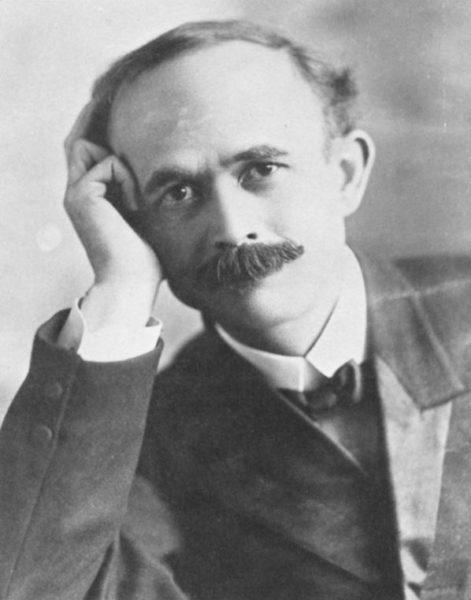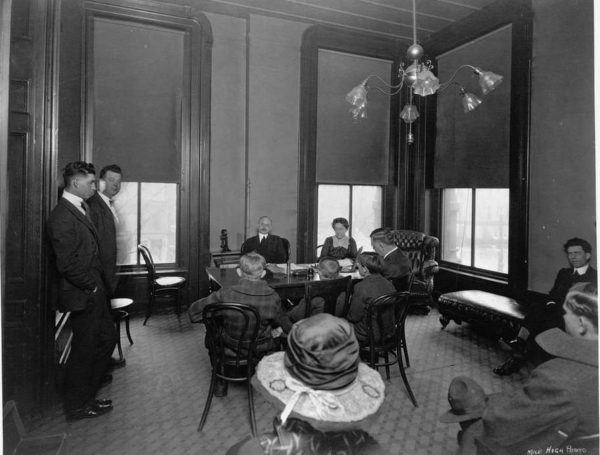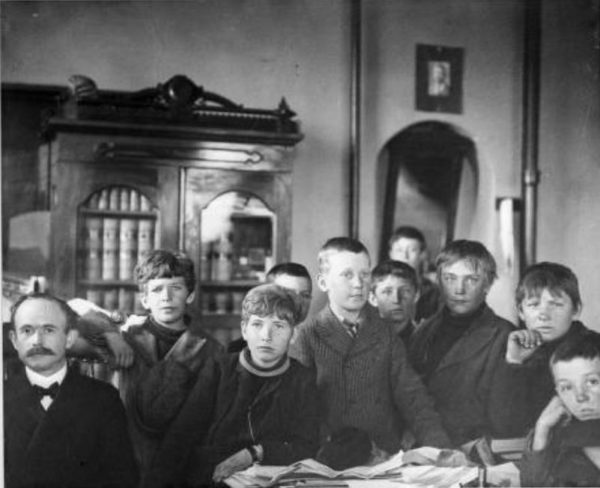
The early twentieth century was an era of social reform in the United States. The labor movement, women’s suffrage, and better opportunities for those less fortunate were among the causes that defined the period. In Colorado, one of the state’s most active reformers was Ben Lindsey, who pioneered the juvenile court system.
Originally from Tennessee, Benjamin Barr Lindsey moved to Denver as a child when his father took a job as a telegraph operator. Ben briefly returned to his home state to attend preparatory school at Southwestern Baptist University. Back in Denver after graduation, he decided to study law. But then his father, deeply in debt, committed suicide, leaving Ben – still a teenager – to support his mother and younger siblings. At one point, Ben, too, attempted suicide, but then resolved to “crush the circumstances that had almost crushed me.” He worked various jobs, including as a newsboy, a janitor, and a clerk at a real estate office, reading law in his spare time.
Ben Lindsey’s first exposure to juvenile law came while working as a clerk in a Denver law office, which handled some juvenile defense cases. Lindsey found that by talking to the accused children, he could get their side of the story. Many of the children were orphans or lived in poverty, so they roamed the streets, surviving as best they could – which sometimes got them into trouble. Lindsey learned from visiting with these children that in many cases what they needed was help, not punishment.
After several years of studying, Lindsey was admitted to the bar in 1894. Five years later he was appointed as a public administrator, serving as a legal guardian for orphaned children. In 1901 Lindsey was appointed county judge (Denver was at that time still part of Arapahoe County), and he used his new position to advocate for children. As a judge, he continued his practice of visiting with them and their families to learn about their circumstances.
During this era, juvenile delinquents were often sentenced as adults, even being jailed alongside adult offenders. In his own courtroom Lindsey typically sentenced juvenile offenders to probation or reform school instead of being sent to jail. But Lindsey began to wonder if something could be changed in state law that would allow the courts to treat juveniles differently from adults. An 1899 school law strictly defined truancy as criminal and disorderly behavior, which led to more children coming through the court system. As a result, Lindsey asked the District Attorney to send all juvenile cases to his courtroom, and the D.A. was glad to oblige. This was an informal arrangement, however, so Lindsey worked to codify the juvenile court in state law.
In 1907, Lindsey’s efforts led the State Legislature to pass an Act establishing a juvenile court in every Colorado county with a population greater than 100,000. At that time, Denver was the only such county, but the act allowed for future growth in other places in the state. The juvenile courts would have jurisdiction over all cases involving minors, including juvenile delinquency as well as family law cases such as custody, or for adults charged with crimes against children. The law also specified that a judge would be elected or appointed specifically to the juvenile court. The first such appointment in Denver was, of course, Ben Lindsey.

Lindsey held the post for twenty years, from 1907 to 1927. During his time as judge, Lindsey advocated for the rehabilitation of children, not just their punishment. He pioneered the use of parole officers for minors, brought awareness to child neglect, encouraged school attendance, and fought for better working conditions for child laborers. He also worked toward creation of a state law that provided assistance to mothers who were having difficulty caring for their children.
Judge Lindsey was not without enemies, however. Denver was rife with corruption during his era. In 1910 he published The Beast, a book about his struggles against the Denver political machine. (A new edition from University Press of Colorado was released in 2009, and can be checked out from our library). Then in 1924, when Lindsey ran for re-election, his opponent was a member of the Ku Klux Klan, which swept many state offices that year. Lindsey won the election, but the Klan contested it, dragging out the case for several years. Also during this time, Lindsey made the mistake of accepting payment for providing counsel in an inheritance case in another state, which he was not allowed to do as a judge. As a result, the Colorado Supreme Court disbarred Lindsey in 1929. (He was later readmitted).
Following this disgraceful period, Lindsey, his wife, Henrietta, and their adopted daughter relocated to California. In the 1930s he became a Los Angeles Superior Court Judge. Ben Lindsey died of a heart attack in 1943, and his ashes were scattered around the juvenile court building in Denver. In spite of his later controversies, he is fondly remembered in Colorado for his untiring work on behalf of children. Today, Denver’s Lindsey-Flanigan Courthouse commemorates “The Kid’s Judge.”
The work of the Juvenile Court in Denver continued as well. In 1933 Stanley H. Johnson, the new judge of the Denver Juvenile Court, published The Juvenile Court of Denver, Colorado: Digest and Analysis of Its Laws and Work. This volume has recently been digitized and made available online from our library. It contains a brief history of the establishment of the juvenile court in Denver and Lindsey’s role. It also provides statistics, a summary of state law regarding juveniles, and “comment upon the nature and procedure of the case work done.” As the first “thoroughly published analysis of the work of the Juvenile Court,” this is an important primary source document for anyone researching the history of the juvenile court in Colorado. Another useful resource, also digitized by our library, is the early-1900s reports of the State Bureau of Child and Animal Protection, which include discussions on laws relating to juveniles and juvenile delinquency. Discover more Colorado history resources by searching our library’s online catalog.

Additional sources:
https://history.denverlibrary.org/colorado-biographies/judge-benjamin-barr-lindsey-1869-1943
https://www.jstor.org/stable/40168595?read-now=1&seq=1
- How to Spot the Differences Between Eagles and Hawks - August 16, 2021
- How Transportation Projects Help Tell the Story of Colorado’s Past - August 9, 2021
- Time Machine Tuesday: The Night the Castlewood Canyon Dam Gave Way - August 3, 2021
What a very humble beginning and true dedication. despite the odds of what happened the suicide incident has made him a better man for the State of Denver.